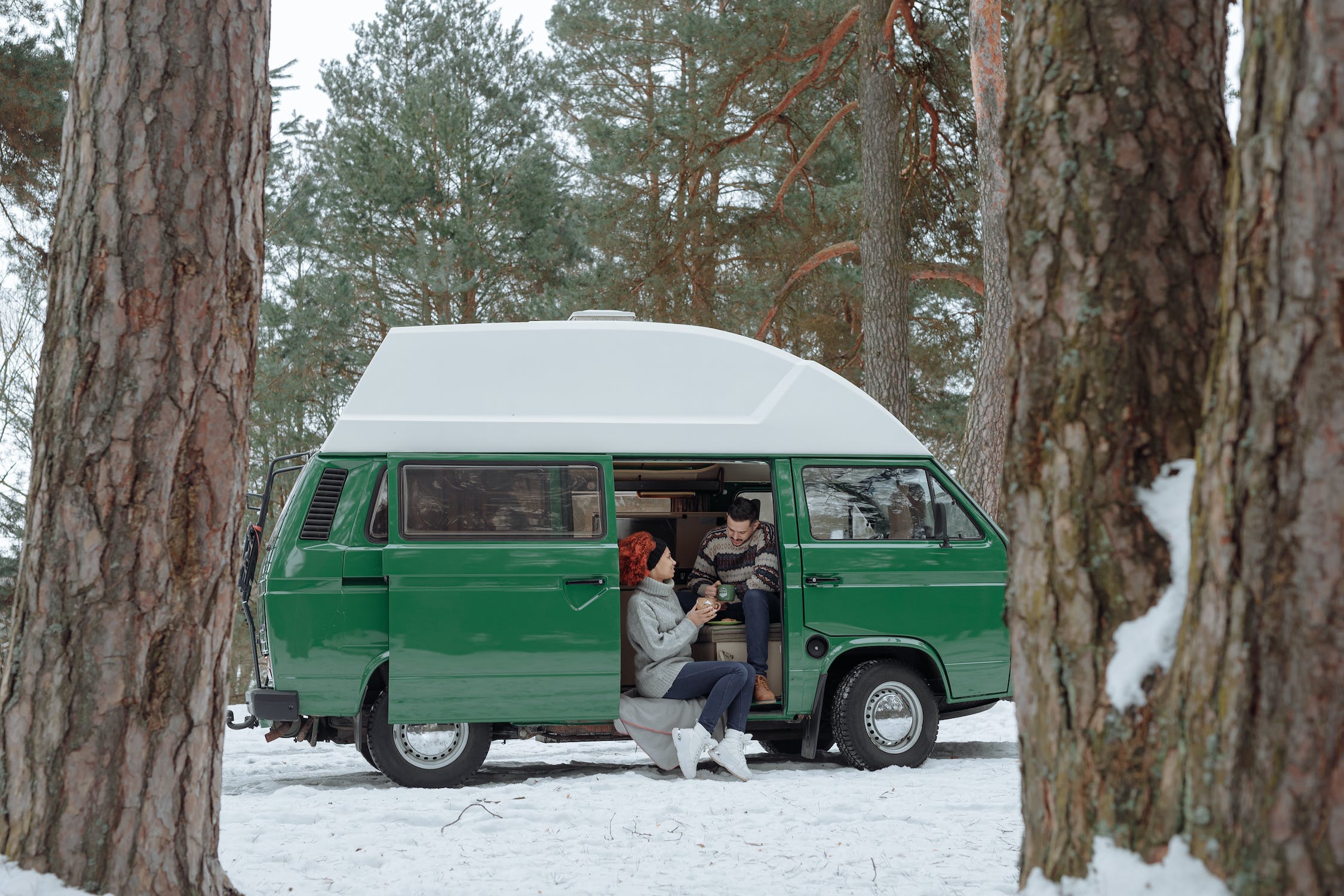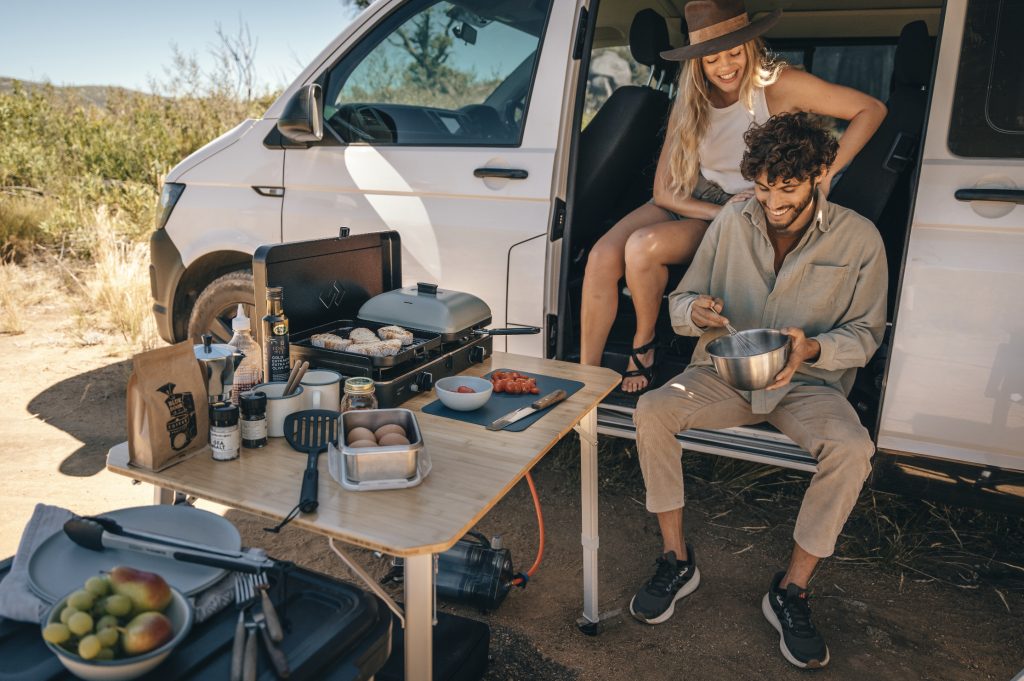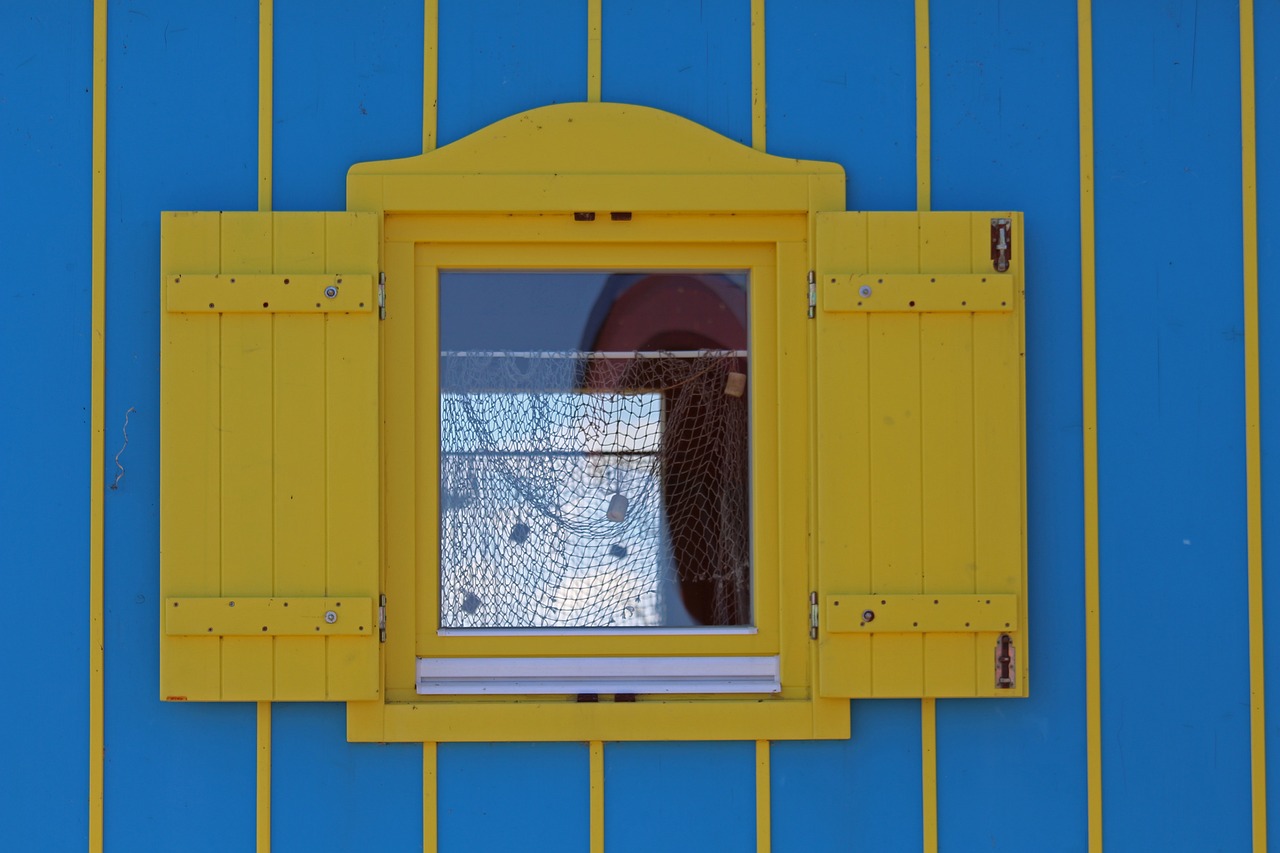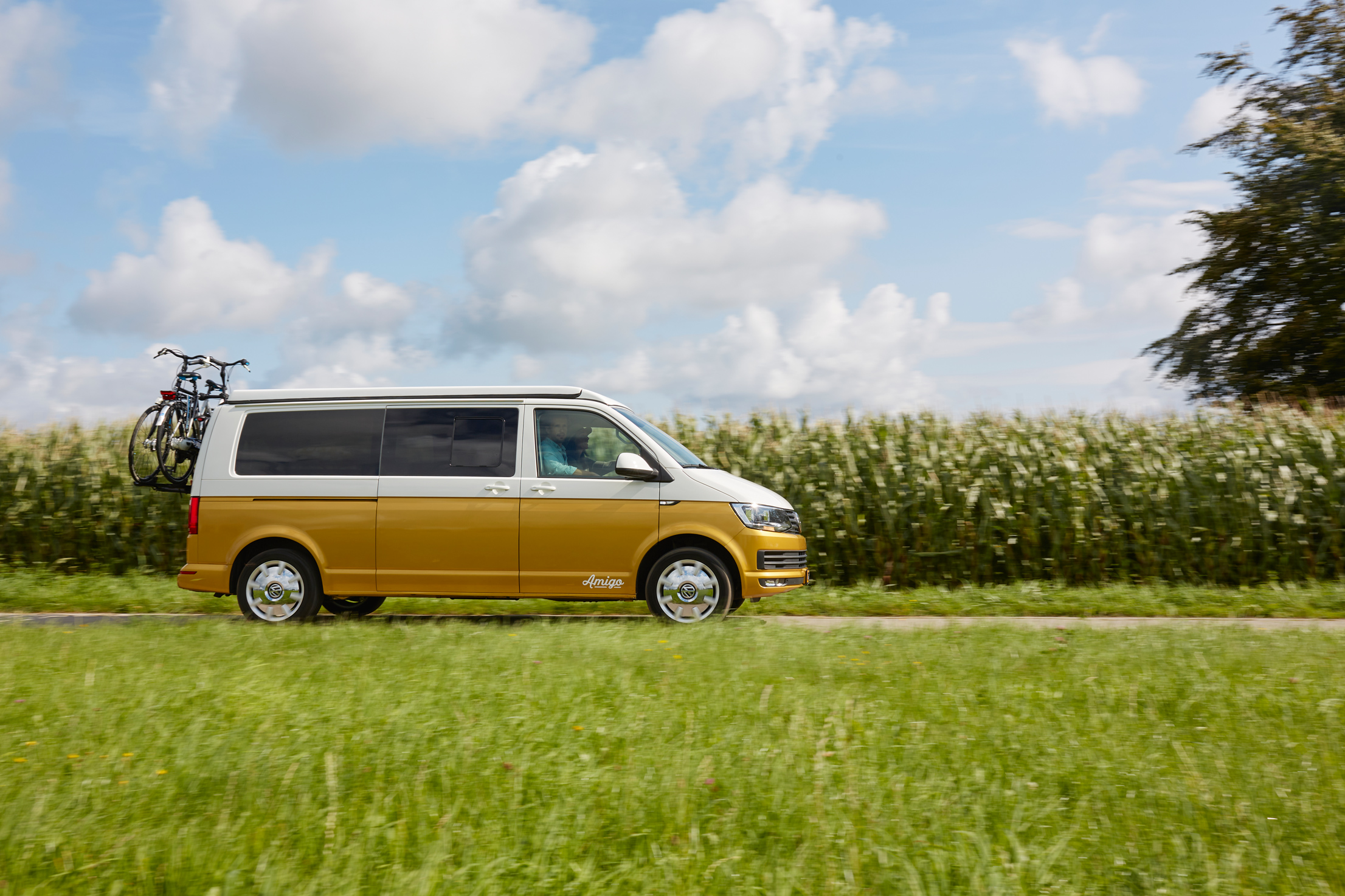How can I insure my camper?
How can I insure my camper?
Preface:
How can I insure my camper? This is a frequently asked question and increasingly relevant as more and more reported RV thefts are received. In this blog you can read everything about the question: How can I insure my camper?
RV insurance is a crucial part of owning an RV. This insurance provides financial protection against various risks that may arise while driving or parking your camper. If you're looking for the right RV insurance, choosing the right insurance policy can be a challenge due to the sheer number of options available. Here we discuss the complexities of insuring a campervan in the Netherlands, including the different types of insurance policies available, the costs and the cover each policy provides.
I.
How can I insure my camper: The types Camper insurance:
There are different types of camper insurance available in the Netherlands, each with its own features and benefits. Below we discuss the three most common types of camper insurance in the Netherlands.
a. Third party liability insurance
Third party insurance is the most basic form of insurance available for RVs. This insurance covers the damage you cause to other people or property during an accident in which you are involved. If you are involved in an accident in which you are held liable for the damage suffered by the other party, your third party liability insurance will reimburse this damage. This insurance is legally required for every camper in the Netherlands.
b. Limited comprehensive insurance
The Limited Casco insurance (also known as WA + Limited Casco or WA Plus) is a more comprehensive insurance than the third party insurance. In addition to covering the damage you cause to other people or property, this insurance also covers damage to your own camper as a result of theft, fire, storm damage, hail damage and window breakage. It's a good choice if your RV still has significant value.
c. Full Comprehensive Insurance
The Full Comprehensive Insurance (also known as All-Risk Insurance) is the most comprehensive camper insurance available. In addition to covering all damage covered by the Limited Comprehensive Insurance, this insurance also covers damage that you have caused to your own camper during an accident. It's a good choice if your RV has a high value and you want comprehensive coverage.
Choosing the right RV insurance can be a challenging task because it is important to choose the policy that best suits your RV and your specific situation. When determining the right insurance, it is important to consider several factors, including the value of your RV, the use of your RV and your budget. Comparing different insurers can help you choose insurance that meets your needs.
In addition to the cost and coverage of insurance, there are other important factors to consider when choosing RV insurance. One of these factors is the deductible, which is the amount you will have to pay if you make a claim. A higher deductible can lead to lower monthly premiums, but can also lead to higher out-of-pocket costs if you need to make a claim.
II. Coverages and Exclusions:
When purchasing RV insurance, it is very important to understand the coverages and exclusions that apply to your policy. This gives you clarity about which damage your insurer will reimburse and which will not. Below we discuss some of the most common coverages and exclusions that are important when taking out camper insurance in the Netherlands.
a. Coverages
- Damage due to fire and theft
One of the most common types of damage to RVs is damage from fire and theft. Fortunately, most camper insurance policies offer coverage for these types of damage, both with Limited Comprehensive and Full Comprehensive insurance. This means that if, for example, your RV is stolen, your insurer will cover the costs of replacing or repairing your RV. The same applies to damage caused by fire. This gives you peace of mind knowing that you are financially protected in the event of these unexpected events.
- Collision damage
Another type of damage that can occur is collision damage. If you are involved in a collision, your Limited Comprehensive or Full Comprehensive Insurance will cover the costs of repairing your own camper and damage to other people or property. It is important to note that third party liability insurance only covers damage to other people or property, not damage to your own camper. It is therefore important to choose suitable cover that suits your situation and expectations.
- Damage from natural disasters
Finally, your RV can also be damaged by natural disasters such as floods, storms or earthquakes. Although this does not happen very often, it can happen and that is why it is important to know whether your Limited Comprehensive or Full Comprehensive insurance covers these types of damage. However, it's important to remember that not all insurers offer the same coverage, so be sure to check your specific insurance policy to ensure you have the right coverage.
b. Exclusions
- Damage due to intent
If you deliberately damage your own camper, your insurer will not cover this. This also applies if you cause harm to others as a result of intentional actions. If your insurer can prove that there was intent, your claim will be rejected.
- Damage caused by alcohol or drug use
If you are involved in an accident with your RV due to alcohol or drug use, your insurer will not cover this. You are responsible for the costs yourself. If you drive under the influence of drugs or alcohol and are involved in an accident, your insurer may also decide to terminate your policy.
- Damage due to reckless behavior
If you drive recklessly and are involved in an accident, your insurer may not be able to cover the damages. Your insurer may conduct an investigation to determine whether reckless behavior occurred. If this is the case, your claim may be denied. It is therefore important to drive responsibly and obey the traffic rules to avoid your insurance not providing coverage in the event of an accident.
- Damage due to wear and tear
As a camper owner, it is important to understand what damage your camper insurance does and does not cover. An important point to remember is that normal wear and tear on your RV is not covered by your RV insurance. This means that damage resulting from old age or regular use, such as wear and tear on tires, brakes or the engine, will not be reimbursed by your insurer. It is therefore essential to have your camper regularly maintained and inspected to minimize the risk of wear and tear and resulting damage.
III. Costs of Camper Insurance:
The cost of RV insurance can vary greatly depending on several factors. It is therefore important to understand which factors influence the cost of your insurance and how you can influence them. Below we discuss some of the key factors that influence the cost of RV insurance.
a. Factors that influence costs
In addition to the factors previously discussed, there are a few other factors that can affect the cost of your RV insurance. Below we discuss some of these factors.
- Age and experience of the driver
Just like with car insurance, the age and experience of the driver affects the cost of RV insurance. In general, younger and less experienced drivers are more expensive to insure than older and more experienced drivers. This is because younger and less experienced drivers are statistically more likely to be involved in accidents.
- Type of camper
The type of RV you own can also affect the cost of your insurance. For example, some insurers offer higher premiums for RVs that are more suitable for long distances or have more advanced technology. It is important to check the specifications of your RV and whether it will affect your insurance premium.
- Estimated annual mileage
The estimated annual mileage of your RV can also affect the cost of your insurance. A higher mileage can lead to higher premiums, because the chance of damage and wear to your camper is greater.
b. Comparison of premiums from different insurers
Comparing the premiums of different RV insurers is an essential part of choosing the right insurance for your RV. It is important to check what coverage and exclusions are offered, in addition to the insurance premium. Below are some steps you can take when comparing premiums from different insurers.
- Gather information about your RV
Before you start comparing premiums from different insurers, you need to gather information about your RV. This includes the make, model, and year of your RV, as well as the estimated annual mileage and value of your RV.
- Search for insurers
Look for insurers that offer RV insurance. You can do this by searching online or asking for advice from other RV owners.
- Compare premiums and coverage
Compare the premiums of the different insurers and check which coverage and exclusions are offered. Please note that the cheapest option is not always the best option as it may not provide the right cover for your specific situation.
- Contact the insurer
If you have any questions about an insurer's premium or coverage, please contact the insurer and ask for more information. This can help you
IV. How can I insure my camper with additional insurance options?
In addition to the basic RV insurance coverage, there are also several additional insurance options available that provide you with additional protection. Below we discuss some of the most common additional insurance options for RV insurance.
a. Legal expenses insurance
Legal expenses insurance provides cover for legal costs arising from disputes with third parties. This can be useful if you are involved in an accident and a dispute arises about liability. For example, the insurance covers the costs of a lawyer, court costs and other legal costs. Legal expenses insurance is especially recommended if you often travel with your camper.
b. Occupants insurance
Passenger insurance provides coverage for the passengers in your camper in the event of an accident. For example, the insurance provides coverage for medical costs, loss of income and permanent disability. This insurance can be especially useful if you often travel with passengers.
c. Roadside assistance insurance
Roadside assistance insurance provides cover for breakdowns on the road, such as engine failure, flat tires or other technical problems. For example, the insurance provides coverage for towing your camper to a garage and for any repairs. Some insurers also offer emergency assistance, such as arranging alternative transportation or accommodation. Roadside assistance insurance can be especially useful if you often travel with your camper.
It is important to remember that additional insurance can increase your RV insurance premium. It is therefore important to consider whether these additional coverages are worth the extra costs for your specific situation. It is also important to read and understand the general terms and conditions of the supplementary insurance policies, so that you know which coverage and exclusions apply.
And last but not least:
So we have now provided a sufficient answer to the question: How can I insure my camper? Hopefully you are a little wiser now. Insuring an RV can be a complex process, but with the right knowledge and understanding of the options available, RV owners can find the best insurance for their specific situation. By researching the different types of insurance, coverages and exclusions, costs and additional insurance options, RV owners can minimize risks and protect themselves against unforeseen events. It is essential to compare carefully before making a final decision on which RV insurance policy to choose.





